Plant-Based Diets
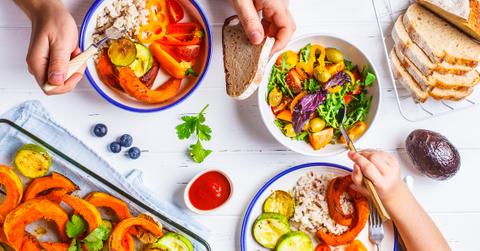
There are endless benefits to eating a plant-based diet — benefits for your health, the planet, animals, and so much more. Keep reading to learn all about what it means to eat a plant-based diet.
What is a plant-based diet?
A plant-based diet is a diet centered upon eating plants, with little or no animal products. Food that’s part of a plant-based diet includes fruits, vegetables, grains, legumes, nuts, and seeds.
The benefits of eating a plant-based diet are endless. It can have a variety of positive health effects on humans, it hurts less animals than a standard American diet, and it has a much lower environmental footprint.
What is a whole food plant-based diet?
Many people who follow a plant-based diet for health reasons try to stick to a whole foods plant-based (WFPB) diet, which focuses on eating foods in their whole form, as they appear in nature. Someone eating a WFPB diet might also limit their consumption of processed or refined foods, such as oil, refined sugar, white flour, and packaged snacks made with chemicals.
What is veganism?
Veganism is a lifestyle that seeks to exclude the use of animals as much as possible. Going vegan is usually a decision one makes based on ethical reasons, after learning about the animal agriculture industry’s terrible treatment of animals, as well as the industry’s high environmental impact.
Does plant-based mean vegan?
The terms vegan and plant-based are often used interchangeably — and while the two terms are very similar, there are a few differences.
A vegan eats a plant-based diet — but that’s only one part of veganism. In addition to foods like dairy, meat, fish, eggs, and honey, vegans also avoid animal-derived additives like gelatin and lanolin. Additionally, vegans extend their belief that animals should not be used by humans beyond what’s on their plates, ranging from cosmetics to household cleaning products to clothing to furniture.
Conversely, someone who eats a plant-based diet is not necessarily a vegan. The motivation behind veganism is the animals and often the Earth, while the motivation behind a plant-based diet is usually health or weight loss (though that’s not a hard and fast rule). Because of that, people following a plant-based diet might treat it like just that — a diet — and therefore occasionally eat animal products; they may eat foods made with animal-derived additives; they may also still buy clothing, furniture or other items made from animal materials such as leather, wool, and fur; and they may buy personal hygiene products that were tested on animals.
That said, eating a plant-based diet with health as your motivation is still a great thing. Not only can eating mostly plants help prevent and reverse disease, aid in weight loss, and optimize health, but you’ll also enjoy the positive side effects of lightening your environmental footprint, and you’ll hurt less animals.
Is a plant-based diet healthy?
The Academy of Nutrition and Dietetics is the U.S.’s biggest nutrition organization, made up of more than 100,000 professionals. The organization has found that vegan diets are appropriate for people at all stages of life, including infancy and pregnancy, as well as people facing chronic illnesses.
“Well-planned vegetarian and vegan diets containing vegetables, fruits, whole grains, legumes, nuts and seeds can be nutritionally adequate and may provide health benefits for the prevention and treatment of some chronic diseases,” Academy of Nutrition and Dietetics spokesperson Vandana Sheth told Reuters.
What are the health benefits of a plant-based diet?
The health benefits of a plant-based diet go on and on — especially for those eating mostly whole foods. For one thing, plant foods are high in fiber, which can improve digestion and aid in weight loss. Various studies have found that a WFPB diet can help maintain weight for a long time, as opposed to low-carb/high-protein diets (such as keto or Atkins), which are often just temporary weight-loss fixes, according to Healthline.
Additionally, plant-based and vegan diets do not include any dietary cholesterol. Consuming excess cholesterol can lead to heart disease, and since cholesterol is only found in animal products, going plant-based can significantly reduce one's risk of developing heart disease.
In addition to heart conditions, animal products have also been known to cause type 2 diabetes, pre-diabetes, high blood pressure, and obesity — so by decreasing your intake of animal products, you are also reducing your risk of developing those diseases. Not to mention, transitioning to a WFPB diet can also help reverse some of the aforementioned diseases.
Where can I find plant-based recipes?
The internet is filled with vegan recipes to satisfy everything from a hearty appetite to a sweet tooth. Click here for a list of vegan recipe developers who share recipes on their YouTube channels and blogs.
If you’re transitioning to a plant-based diet, you may be surprised to discover that some of your favorite foods may already be vegan — for example, french fries, pasta with tomato sauce, bagels, dark chocolate, and smoothies. Additionally, you can easily veganize your favorite recipes by replacing animal-based ingredients with plant-based alternatives, like almond milk, Beyond Burgers, and vegan cheese.
Can you get enough protein on a plant-based diet?
Yes, you can get 100 percent of the protein your body needs from plants!
Almost every whole plant food — from vegetables to fruit to beans to nuts to bread (yes, even bread) — has protein in it. Additionally, you probably don’t need as much protein as marketing has made you think you do. According to Dr. Michael Greger, famous plant-based physician and founder of NutritionFacts.org, humans only need 0.8 to 0.9 grams of protein “per healthy kilogram of body weight.” That means that a 100 pound person only needs up to 40 grams of protein a day.
Dr. Greger also notes that humans eating enough food are unlikely to develop a protein deficiency — more likely, humans eating diets high in animal protein could experience a protein excess, which can cause kidney problems, liver diseases, an increased risk of cancer, and more.
What are high protein vegan foods?
It's easy to get all the protein you need from a plant-based diet.
If you are trying to build muscle and feel that you need more protein in your diet, plant foods with high concentrations of protein include: beans, lentils, nuts, quinoa, soy products (such as edamame, tofu, or tempeh), broccoli, spinach, and potatoes. There are also plenty of plant-based protein powders on the market.
What are the environmental benefits of a plant-based diet?
A University of Oxford study found that eating plant-based can significantly reduce our environmental footprints. “A vegan diet is probably the single biggest way to reduce your impact on planet Earth, not just greenhouse gases, but global acidification, eutrophication, land use and water use,” Oxford researcher Joseph Poore told The Guardian, based on the study’s results. The study also found that if we stopped producing meat and dairy, we could reduce worldwide farmland by more than 75 percent.
Plus, according to Our Land in Data, livestock uses about 80 percent of agricultural land on Earth, while only supplying 20 percent of the world’s calories. In addition, a massive amount of plant foods (mostly corn, soy, and grains) are required to feed livestock; when cattle pass gas, poop, and burp, they emit significant amounts of methane, a greenhouse gas; and runoff from factory farms can pollute soil and waterways, which is a public health risk for neighboring communities. This all further increases the environmental impact of animal products.
Are plant-based diets better for animals?
99 percent of animals raised for meat, dairy, and eggs in the U.S. spend their lives on factory farms, according to the Sentience Institute. Unfortunately, animals in factory farms are treated in a way that no compassionate human could call humane. Farmed animals spend their lives inside, crowded in cages or on the floor of a factory — even if the label on your carton of eggs says things like “free-range,” “organic,” or “cage-free.” Those words are not much more than marketing terms, designed to make consumers feel like they are supporting animal welfare by purchasing those products, when in reality, the animals are sadly living in filthy, unhealthy conditions.
Plus, when it comes to animal byproducts like milk, cheese, and eggs, where it may seem like the animals are not suffering, they unfortunately are — and when they are no longer profitable, they are slaughtered, just like animals raised for meat. So by transitioning to a plant-based diet, not only can you improve your personal health and lower your environmental footprint, but you can also stop contributing to the animal agriculture industry.
Is eating plant-based more expensive?
Contrary to popular belief, a plant-based diet is often more affordable than an omnivorous diet — as long as you are eating mostly whole, plant foods, and only occasionally eating things like meat and cheese alternatives. Some of the cheapest (and most nutritious) foods in your grocery store are fruits and veggies (especially frozen or canned varieties); grains like pasta and rice; and legumes like beans and lentils (which can be even cheaper if purchased dry instead of canned).
A vegan diet gets the reputation of being expensive or inaccessible — which can be true if you’re focusing on buying alternative products like faux meat, vegan cheese, or frozen vegan meals. But if you keep your plant-based diet focused on whole plant foods, you could actually save money by going plant-based.
How can I transition to a plant-based diet?
There’s no wrong way to transition to a plant-based diet, but there are a few techniques that can help things go smoothly. You can: try replacing your milk with non-dairy milk like soy milk, almond milk, or oat milk; start with Meatless Mondays, and eat vegetarian or vegan every Monday; cook your favorite meals with plant-based substitutions in lieu of animal-based ingredients; or simply try new plant-based dishes, either at home or in restaurants, whenever you have the chance. Focus on the new foods you’re adding to your diet, as opposed to the animal products that you may be taking out of your diet, and things should go swimmingly.
Check out Green Matters' guide to switching to a plant-based diet.
Latest Plant-Based Diets News and Updates

The 6 Best Vegan and Vegetarian Hot Dog Brands on the Market
Vegan and vegetarian hot dogs have come a long way — here are five of the best ones on the market. Plus, are vegan hot dogs healthy?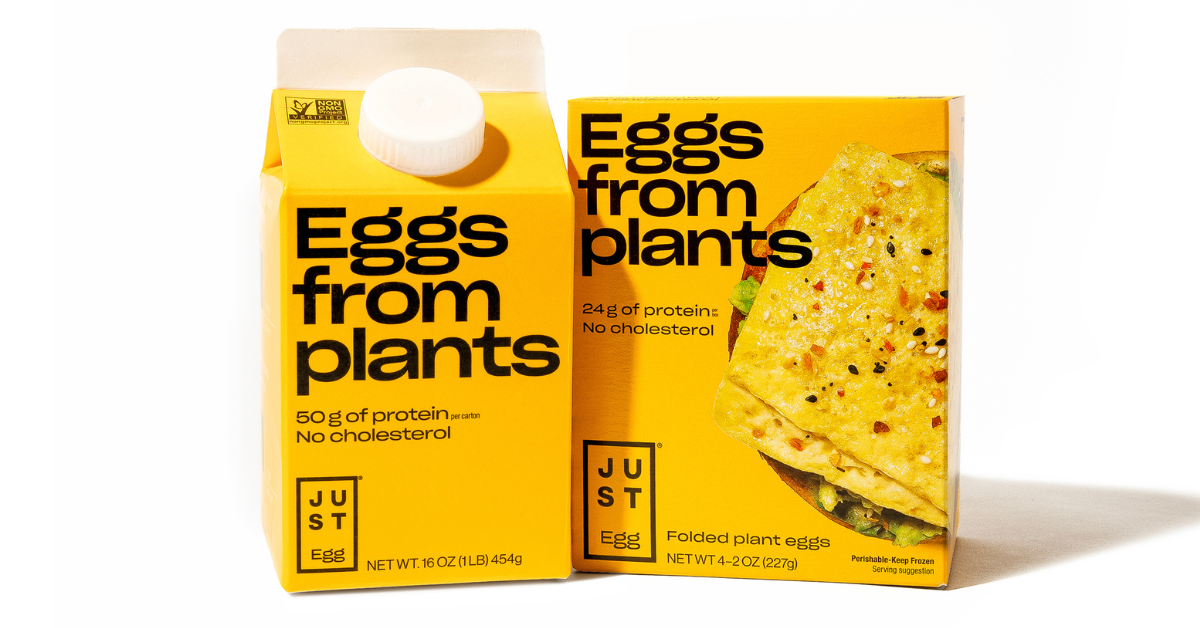
Fight Egg Surcharges, and Try the Vegan Just Egg (Coupon Inside!)
Just Egg offers itself up as a good alternative for those looking to beat rising egg prices.
Can a Vegan Diet Really Improve Your Eyesight? Here's What Some Studies Say
If you are struggling with your vision, some researchers believe there is merit to consuming vegan foods to boost the strength of your eyesight.
7 of the Best Vegan Carrot Cake Recipes to Satisfy Your Sweet Tooth
If you enjoy the sweet taste of carrot cake, you are in for a huge treat with these delectable vegan recipes.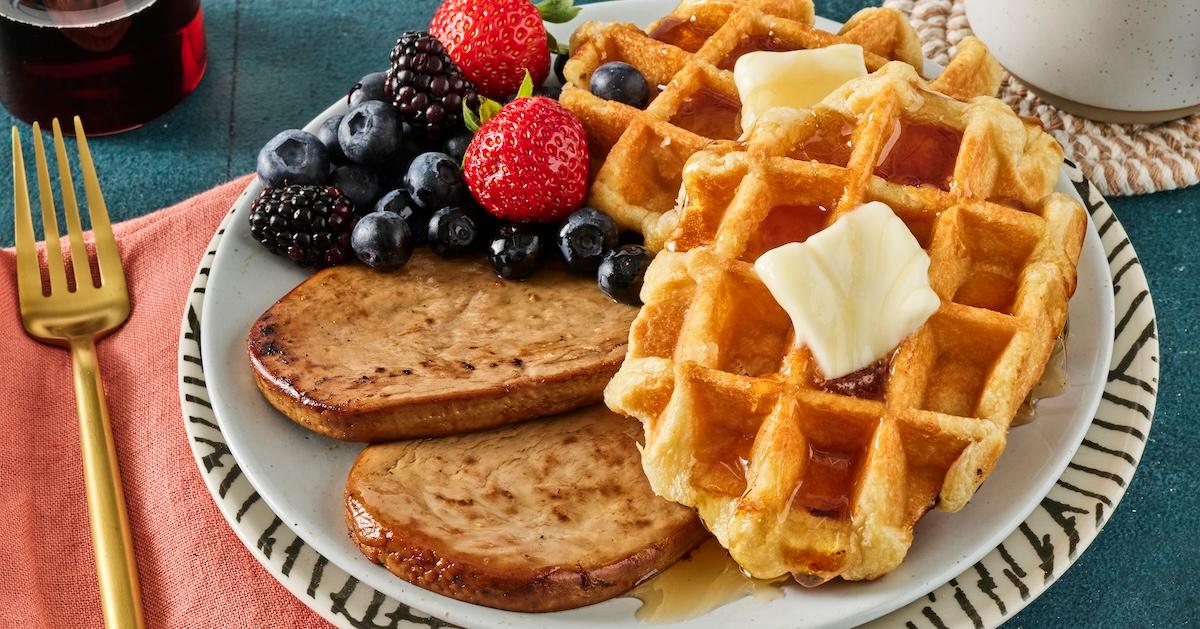
Here Are the 5 Best Vegan Breakfast Sausages
There are many vegan-friendly brands that have entered the marketplace for conscious consumers seeking ethical alternatives to animal meat.
These Vegan Valentine's Day Chocolates Will Help You Celebrate With Extra Compassion
Whether your partner is plant-based, or if you're looking for a cruelty-free option, these vegan Valentine's Day chocolates are the perfect present.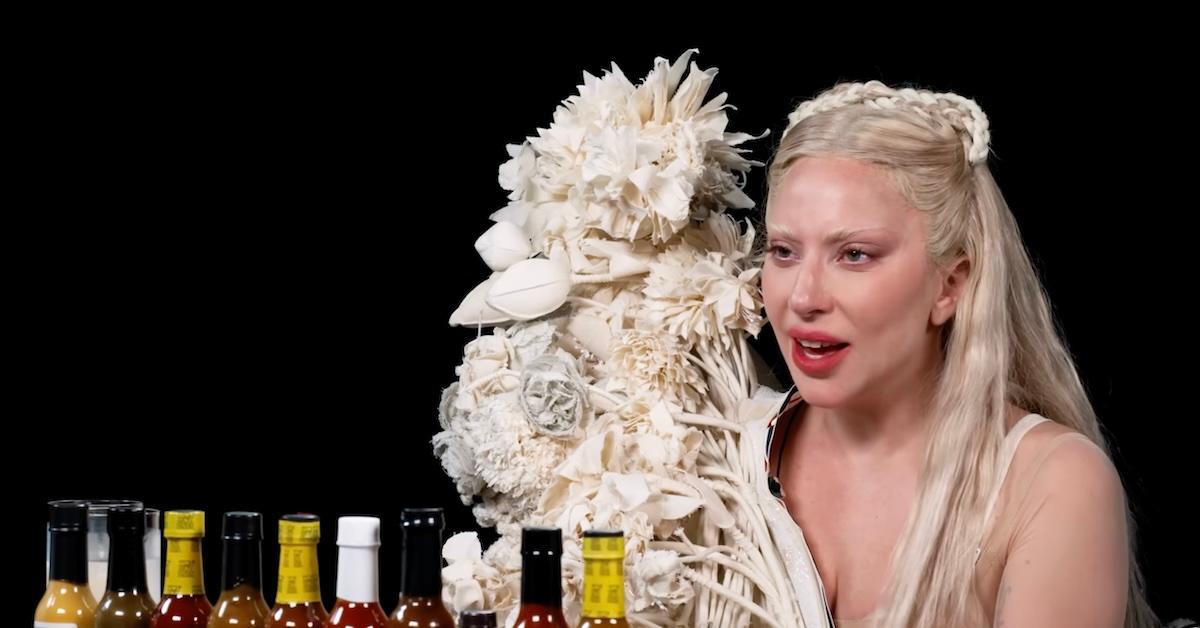
Paul Rudd, Lady Gaga, and All the Celebs Who Ate Vegan on ‘Hot Ones’
A number of celebrity guests have opted for plant-based chicken wings on the competitive eating series, 'Hot Ones.'
Girl Scout Cookies Have Six Vegan Offerings in 2025 — What To Know
If you're a plant-based eater with a sweet tooth, Girl Scout Cookie season might be your Olympics. Here's what to know about the six vegan flavors of 2025.
Meatless Thanksgiving Main Dishes That Your Guests Will Seriously Love
Whether you're avoiding the turkey for Thanksgiving this year, or if you're catering to meatless guests, serve these vegan Thanksgiving main dishes.
Thanksgiving Instagram Captions to Show Off Your Vegan or Zero-Waste Turkey Day
Looking for an Instagram caption for your vegan or zero-waste Thanksgiving meal? We've rounded up some funny, thought-provoking, and clever ideas!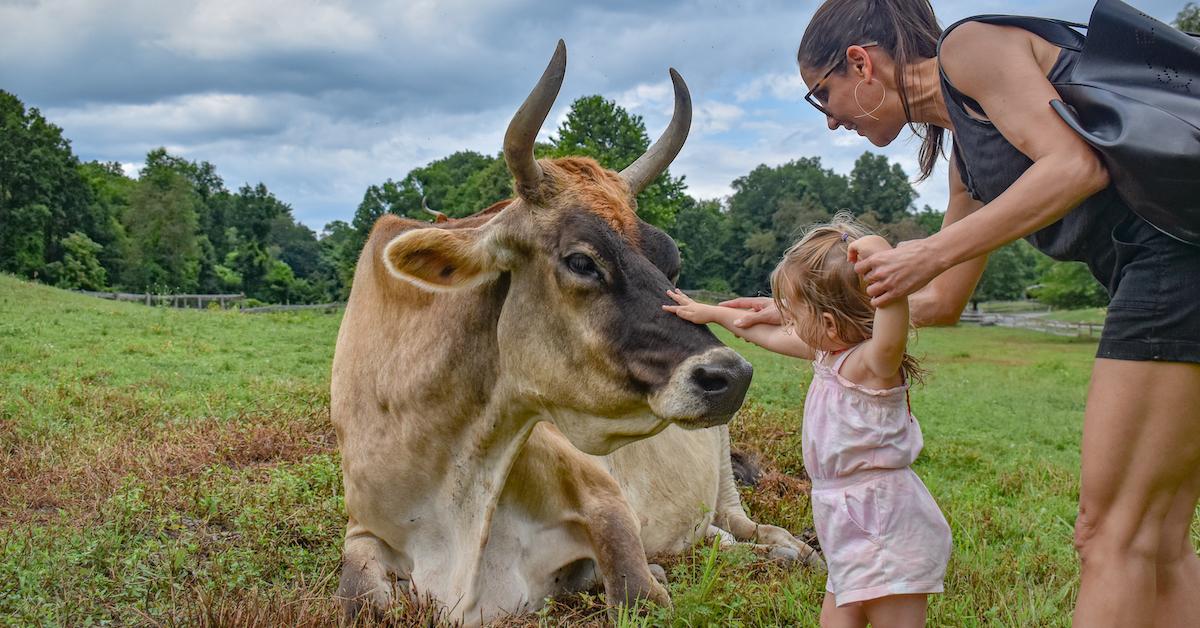
How to Celebrate World Vegan Month This November
Every Nov. 1, World Vegan Day kicks off World Vegan Month, and celebrates the vegan lifestyle.
The Ultimate Guide to Vegan Candy for a Sweet Halloween 2024
Many Halloween candies you know and love happen to be vegan.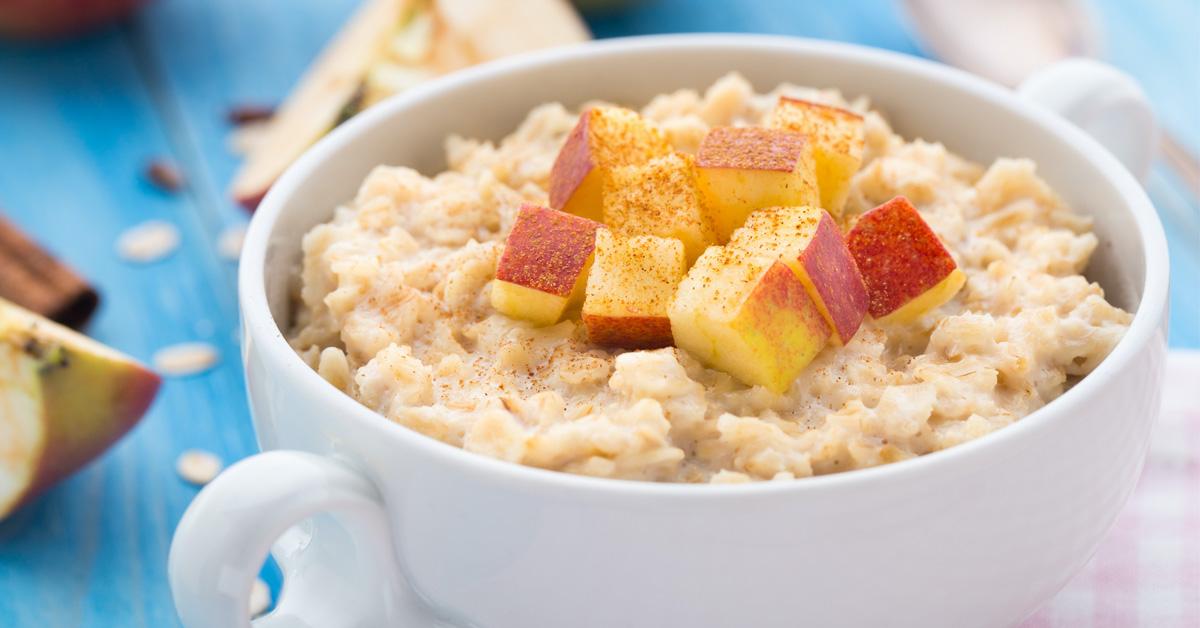
Here's Why Your Oats and Grits Should Be Glyphosate-Free — Plus, 7 Brands You Can Trust
There's a common herbicide called glyphosate hiding in a lot of popular oats and grits on the market, but these brands are free and clear.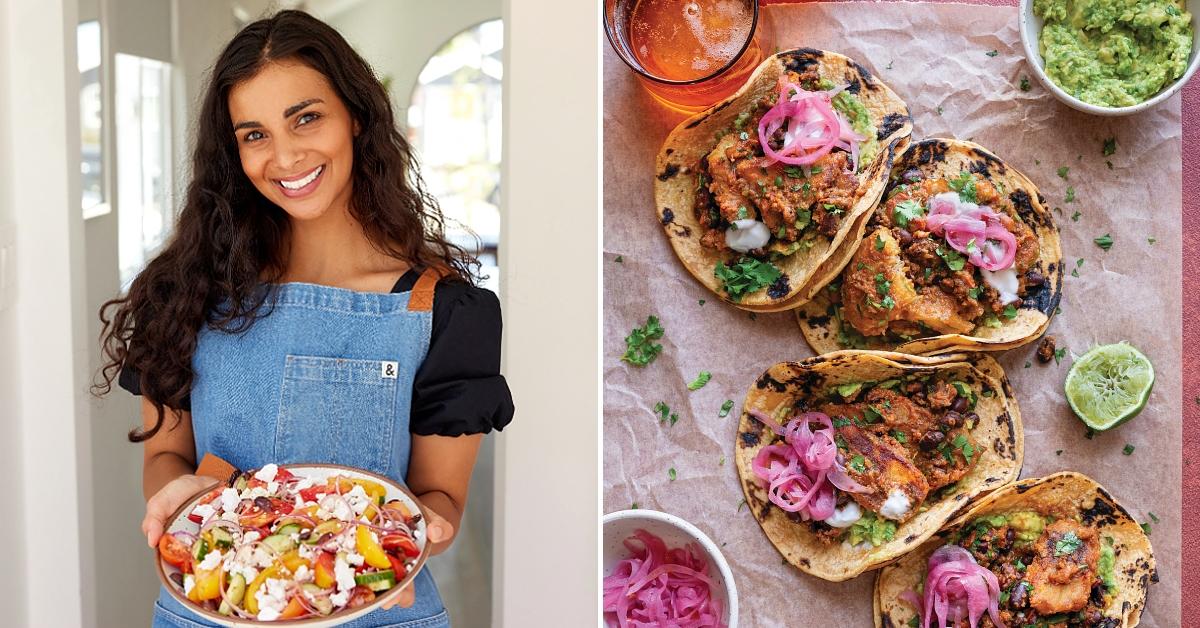
Nisha Vora's Debut Cookbook 'Big Vegan Flavor' Shows How Luscious Plant-Based Food Can Be (Exclusive)
In an interview with Green Matters, vegan blogger Nisha Vora discussed her new cookbook, Big Vegan Flavor, as well as the "fundamental principles" of plant-based cooking.
Celeb Chef Charity Morgan Brings Vegan Cooking to Southern Meat-Eaters in Max Special (Exclusive)
In an interview with 'Green Matters,' vegan Chef Charity Morgan talked bringing plant-based comfort food to Nashville in her Max special, 'Unbelievably Vegan With Chef Charity.'
Is Emma Watson Vegan? Here’s Everything We Know About the Star’s Diet and Lifestyle
Emma Watson does not adhere to a vegan diet, but the famous actress does prioritize sustainability and environmental activism.
Sweet Greens Vegan Is "Not Here to Convert You," but to Make Plant-Based Eating More Fun (Exclusive)
In an interview with Green Matters, vegan influencer Shakayla Felice — aka Sweet Greens Vegan — shared tips for plant-based living and staying sustainable in the kitchen.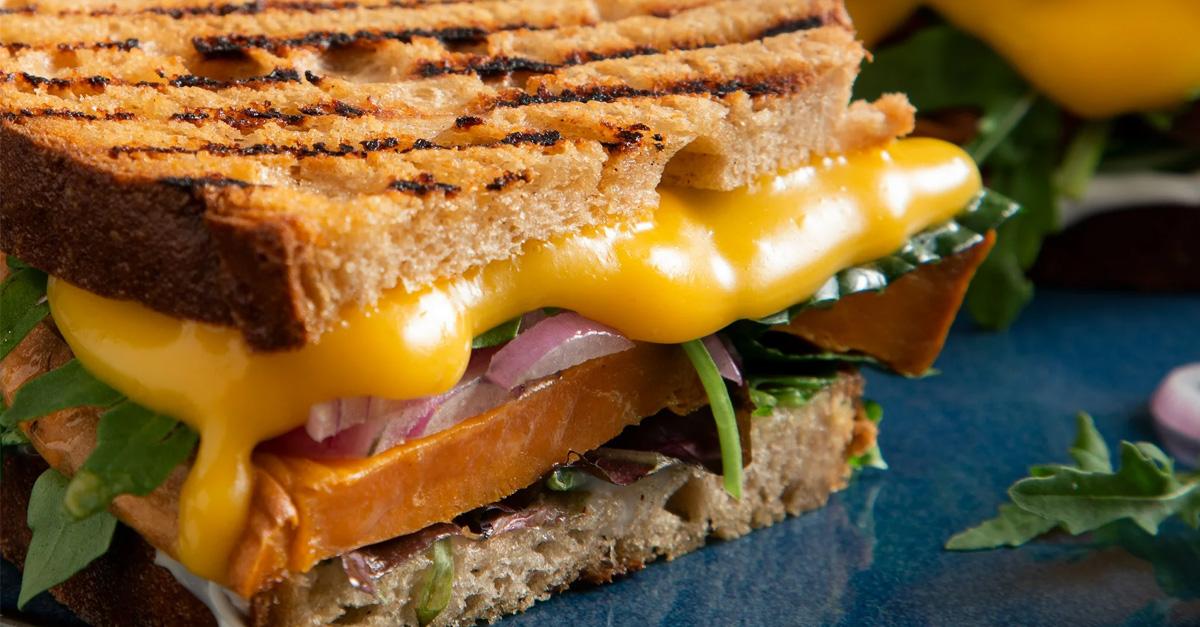
5 Editor-Approved Vegan Cheeses So Creamy and Delish, You'd Think They're Dairy
Ingredients like cashew milk, coconut oil, and tofu make these vegan cheese alternatives perfect for sandwiches, pizzas, pastas, and more.
How to Chop Green Onions: A Step-by-Step Guide for Newbies in the Kitchen
Dicing green onions only takes a few quick minutes, especially after some practice. All you need is a kitchen knife and a cutting board.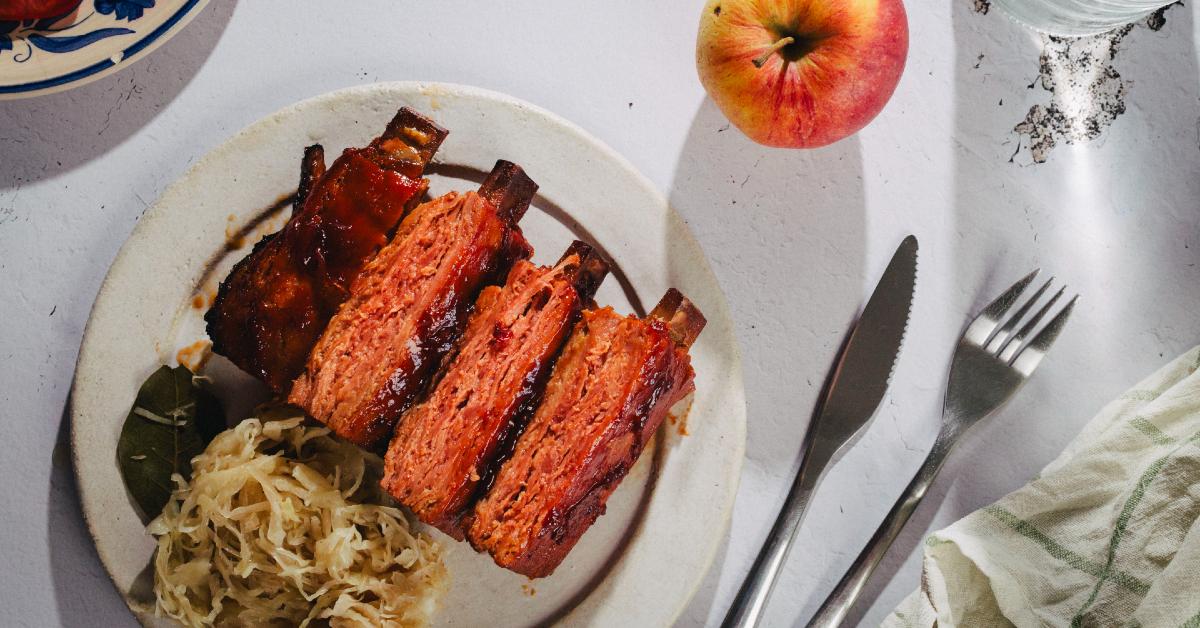
Baby Got Soy: Juicy Marbles Unveils Plant-Based Baby Ribs on the Bone (Exclusive)
In an exclusive interview with Green Matters, Juicy Marbles co-founder Vladimir Mićković discussed plant-based Baby Ribs, sustainability, and appealing to everyone.
Chef Hiranth Jaysinghe on His NYC Restaurant Plant Junkie: "The Future For Plant-Based Food Is Very Good" (Exclusive)
In an exclusive interview with 'Green Matters,' Chef Hiranth Jaysinghe discussed how his Front Street NYC restaurant Plant Junkie offers diverse and tasty vegan options.
'Bake Off' Star Ruby Bhogal's Debut Cookbook Offers "Deliciousness For Every Single Person" (Exclusive)
In an exclusive interview with Green Matters, 'The Great British Baking Show' star Ruby Bhogal gets candid about her new inclusive cookbook, 'One Bake, Two Ways.'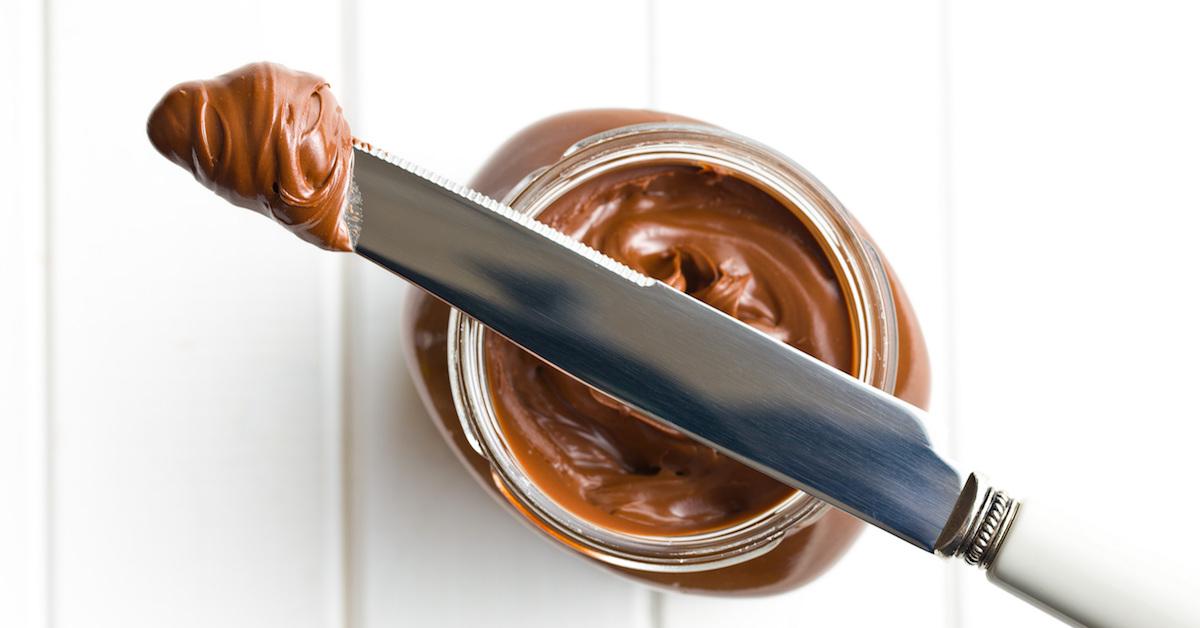
Nutella Is Finally Releasing a Vegan Version — Plus, Other Vegan Hazelnut Spread Offerings
In 2024, Ferrero, the maker of Nutella, announced it would create a vegan version of the spread — plus, other vegan nutellas for your cravings.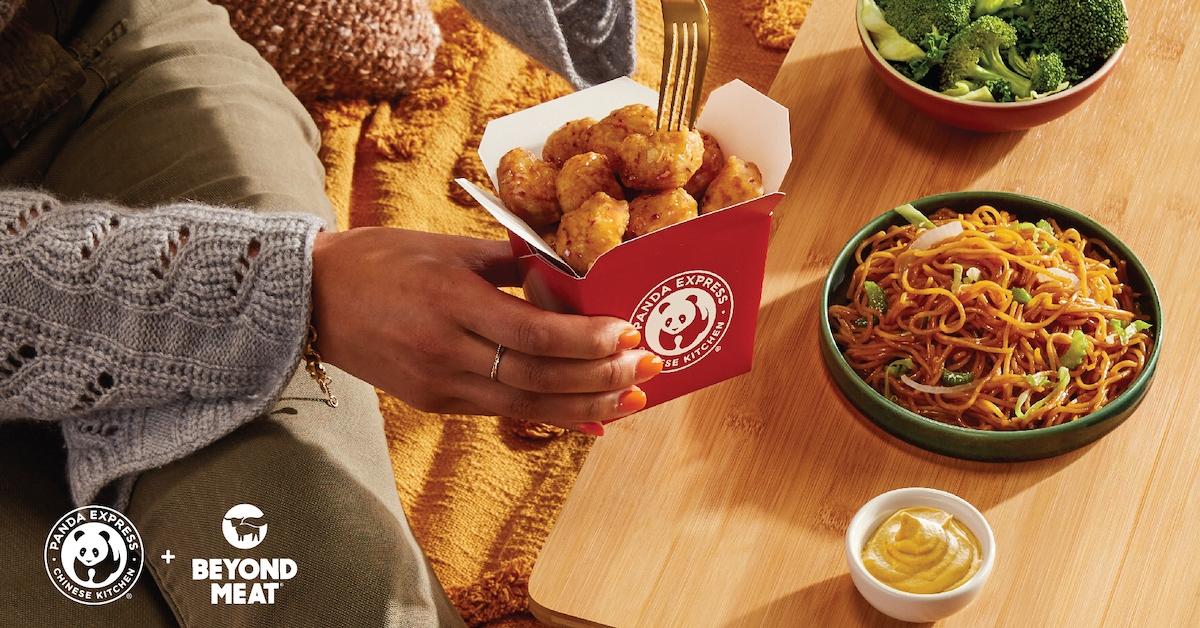
Finally! Panda Express Is Bringing Back Vegan Orange Chicken Nationwide
Panda Express' Beyond the Original Orange Chicken has been a customer favorite for years, so plant-based folks are anticipating the release of a vegan version.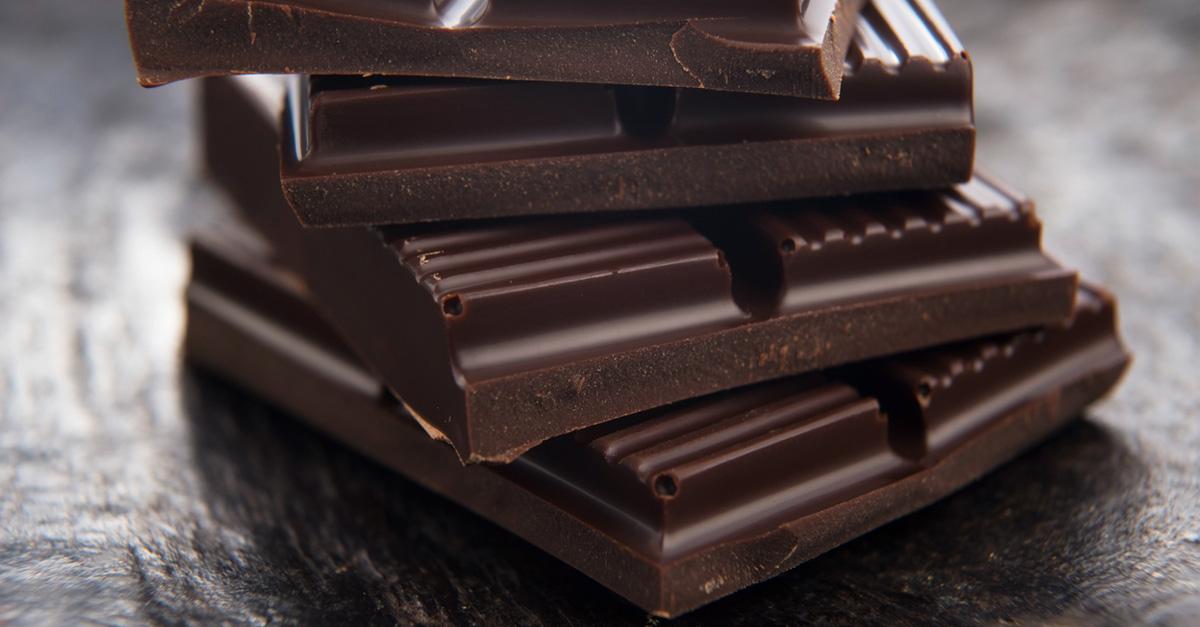
These Are Our Favorite Fair Trade Chocolates That Are 100 Percent Vegan
These dairy-free chocolates are ethically made and absolutely decadent — from creamy bars and peanut butter cups to road trip-friendly bark.
Noted Plant-Based Doctor Dr. John McDougall Dead at 77 — What Was His Cause of Death?
Plant-based physician Dr. John McDougall has died at the age of 77 after spending a lifetime promoting a high-starch vegan diet.
6 Amazing LGBTQ-Owned Plant-Based Eateries Across the U.S. (Exclusive)
Green Matters exclusively spoke with the owners of Lagusta's Luscious Café and Dulce Vegan Bakery & Café in honor of Pride Month.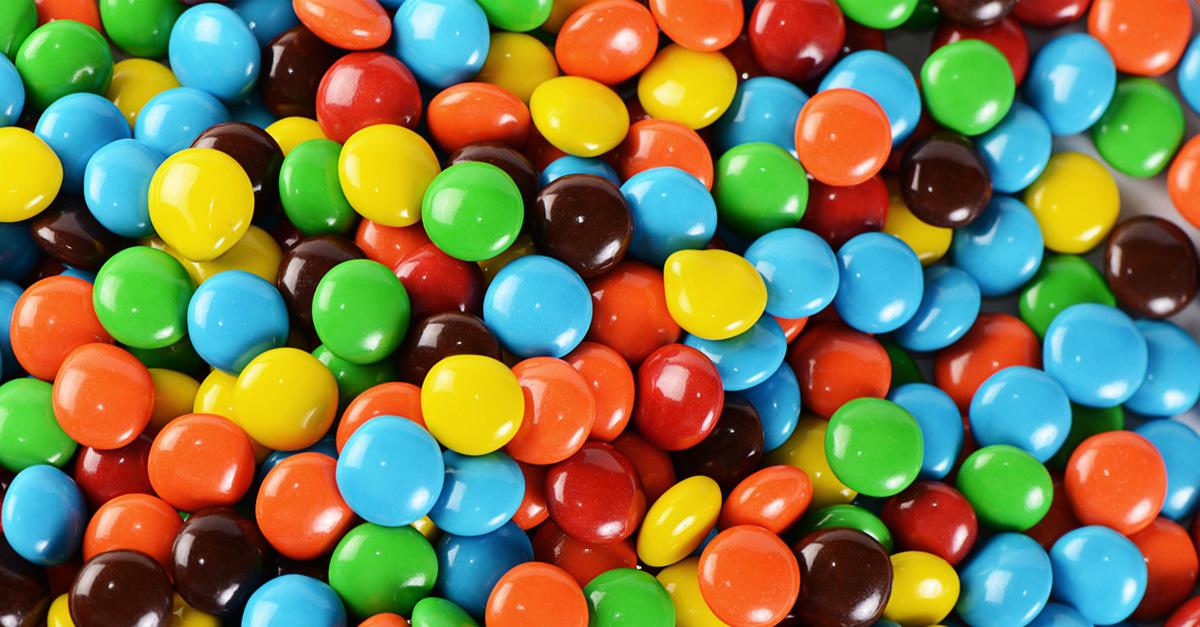
Vegan M&M's Exist and They're "Addictive Little Morsels" — Here Are 4 Brands To Try
Vegan M&M's pack all the sweet, crunchy punch of the original without any of the animal products, animal testing, or unethical labor conditions.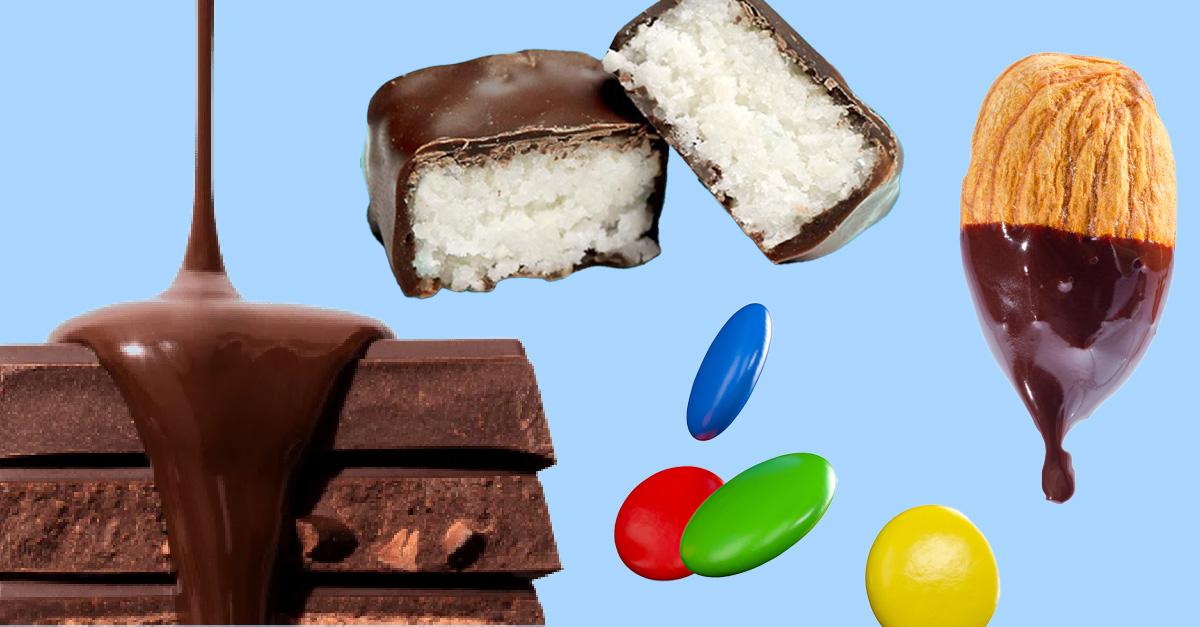
Sweet! These Plant-Based Chocolate Snacks Are Dairy-Free, Delicious, and Ethically Made
Each one of these plant-based chocolate bars and chocolate-covered snacks has no animal products and adheres to fair trade practices.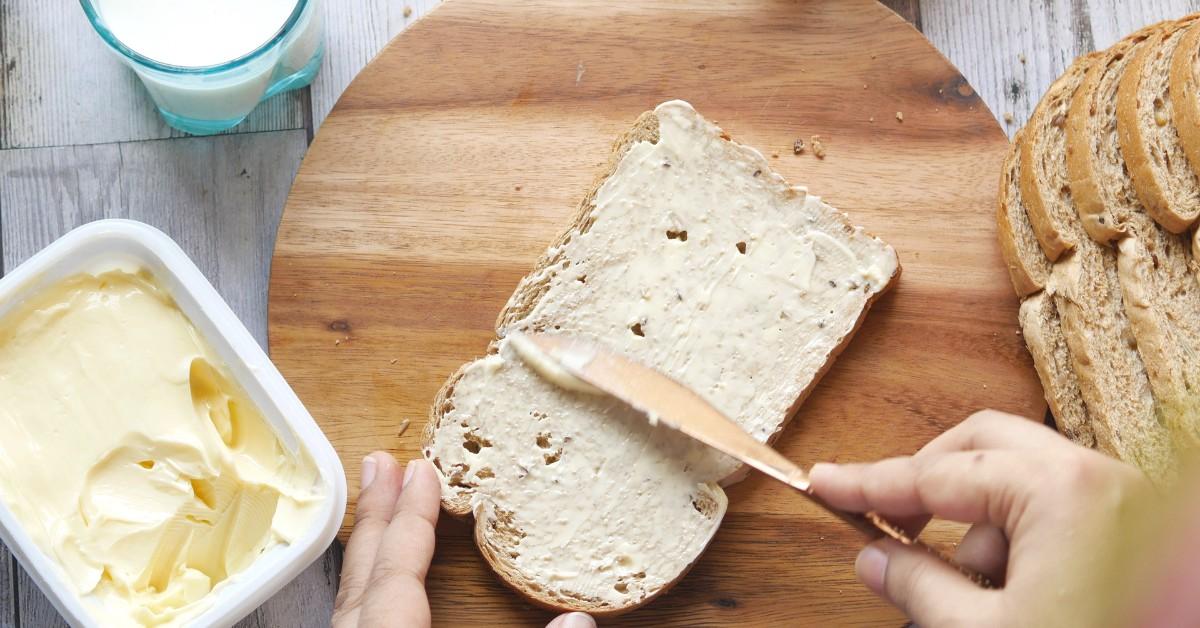
Why Some Vegans and Vegetarians Won't Eat Margarine
Most margarines contain no animal byproducts but not all butter alternatives are considered vegan.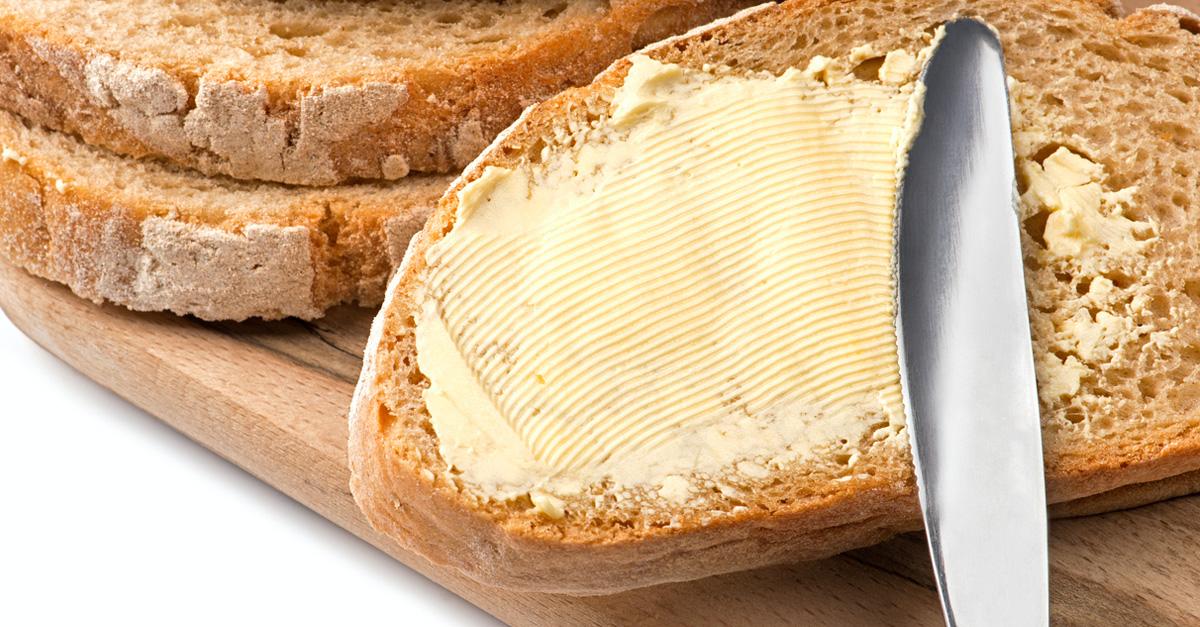
The 6 Best Vegan Butters: Creamy, Indulgent, and 100 Percent Plant-Based
These vegan butter brands use plant-based alternatives to dairy, including coconut oil, olive oil, and almond milk to produce delicious doppelganger.
Satisfy Your Thirst and Tame Your Allergies With These 6 Gluten-Free Brews
Gluten is a a protein found in beer, and some people are intolerant or allergic to it. These six beers are gluten-free and filled with flavor.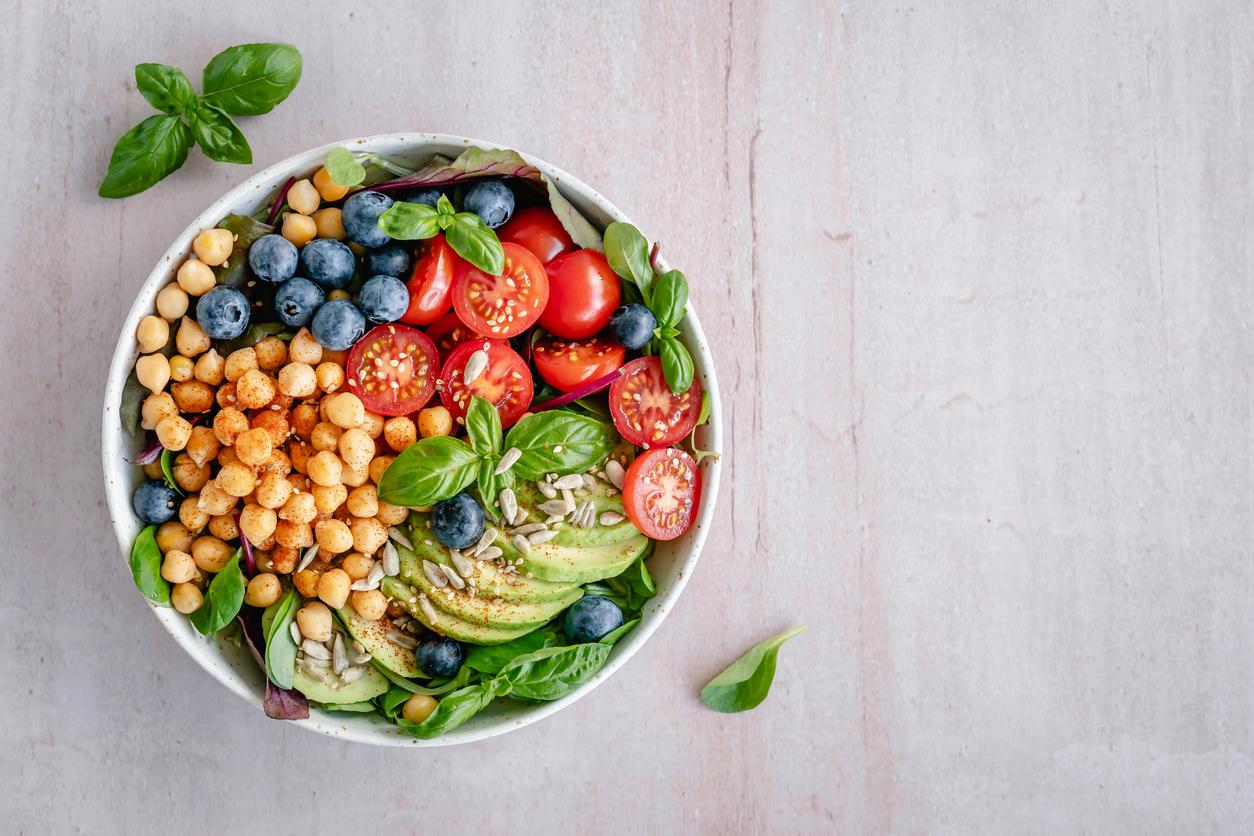
Want to Add More Color to Your Diet? Try These 10 Nutrient-Packed Vegan Summer Salads
Whether you like cherries, kale, or cucumbers, there’s a summer salad for everyone — here are 10 of our favorite recipes.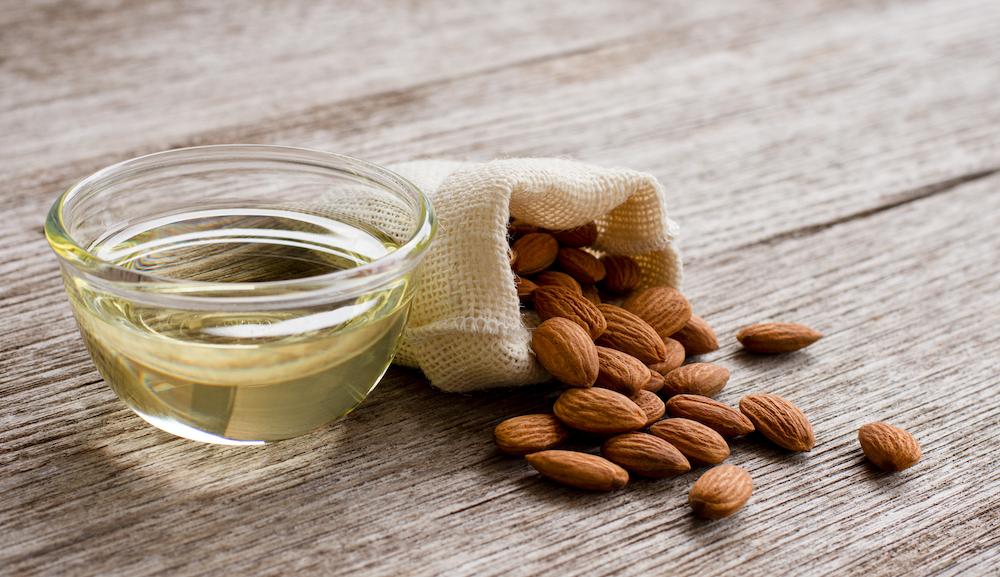
Here's How Much Water Almond Trees *Really* Use — Hint: Way Less Than Dairy
The amount of water it takes to grow one almond may actually surprise you, considering just how popular almond milk has become.
The Best Store-Bought Chocolate Chip Cookies That Are Both Decadent and Wholesome
These decadent, vegan chocolate chip cookies bring all the crispy and chewy goodness minus things like gluten, refined sugar, allergens, and more.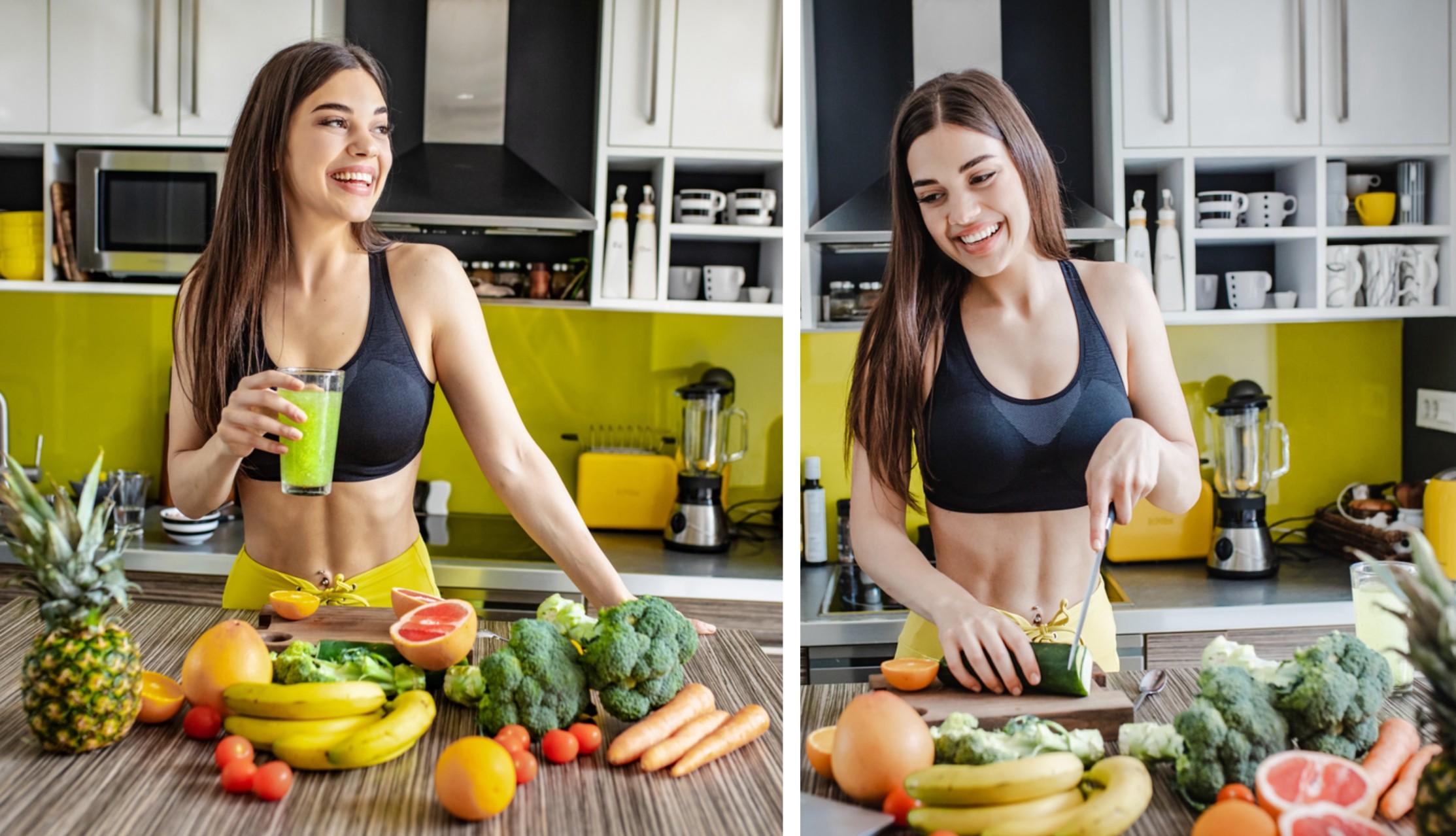
We Asked a Dietitian: How to Build the Ultimate Plant-Based Meal Plan for Athletes (Exclusive)
David Goldman, a sports dietitian, shares his research and expertise to formulate the perfect plant-based athlete meal plan.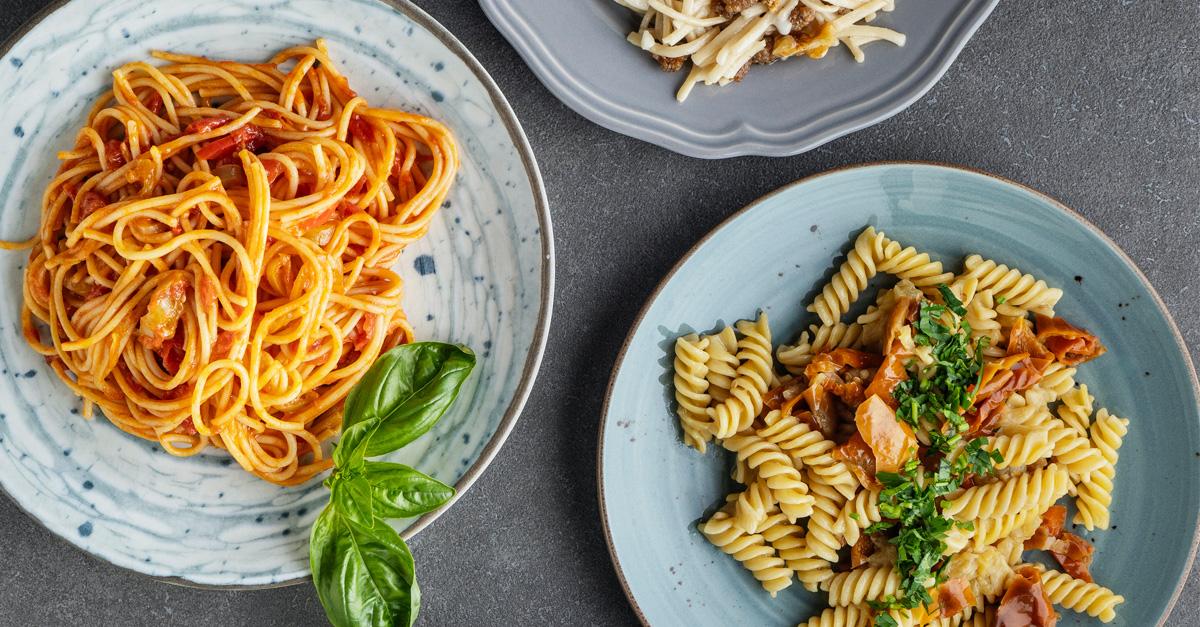
The 6 Best Gluten-Free Pastas That Seriously Satisfy Your Craving for Carbs
These gluten-free pastas made of plant-based ingredients like chickpeas, quinoa, and buckwheat have the taste and texture of traditional pasta.
Unsweetened, Plant-Based Protein Powder — That Doesn't Taste Gross!
There are some highly-rated, plant-based, and tasty protein powders without artificial sweeteners out there — that don't taste like chalk.
Busy Mama Soccer Star Sydney Leroux Talks All Things Protein, Recovery, and "Me Time" (Exclusive)
In an exclusive e-interview with Green Matters, soccer star Sydney Leroux discussed her protein-heavy diet and prioritizing rest and self-care as a working mother.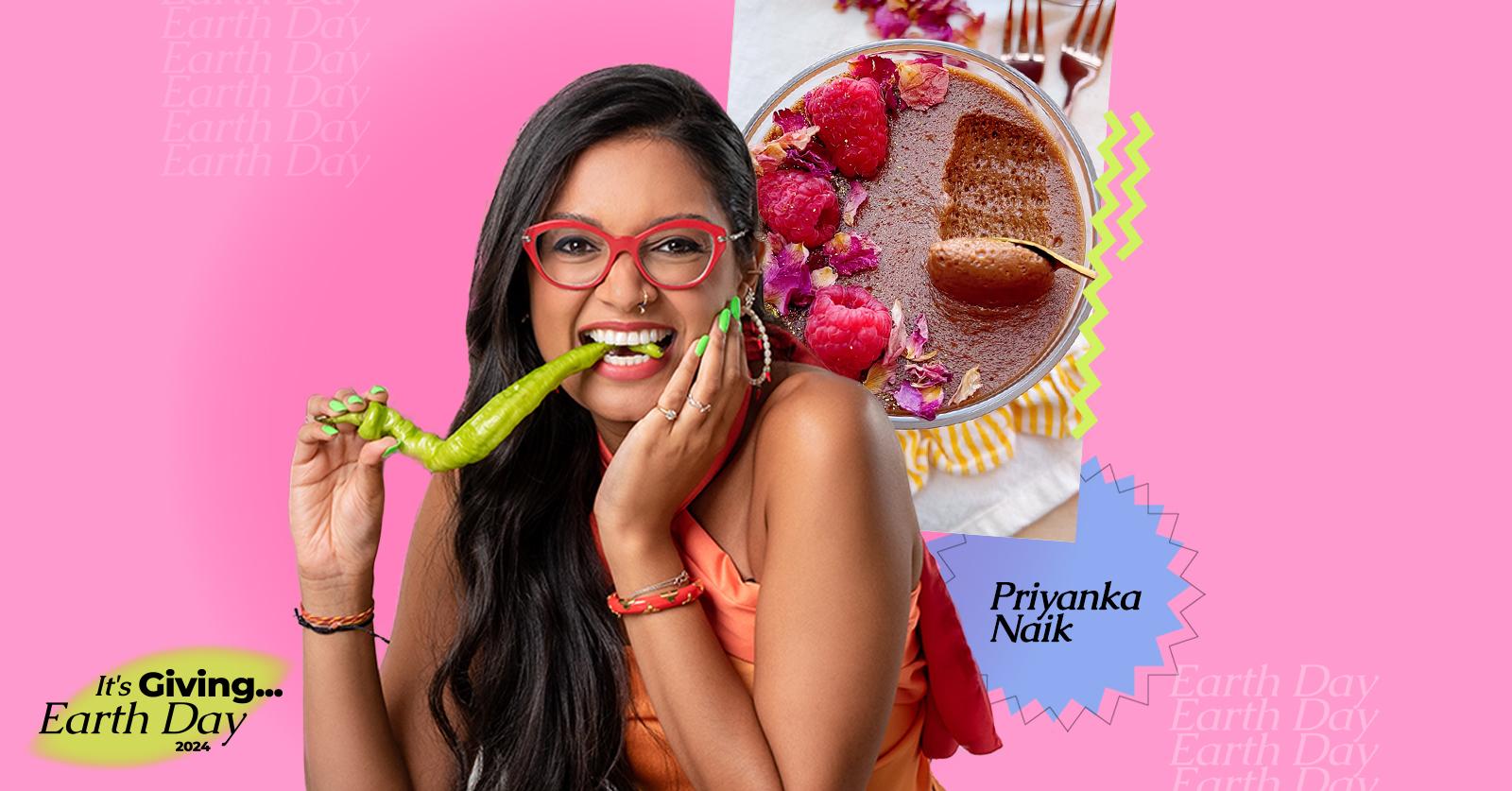
It's Giving... Chef's Kiss: How Chef Priyanka Naik Makes Food From Waste (Exclusive)
Mango skin, watermelon rinds, carrot tops... none of this is waste to Chef Priyanka Naik! The vegan chef speaks exclusively with Green Matters about her low-waste cooking style!
It's Giving... 'Next Level Chef': Why This Reality Contestant Loves Plant-Based Cooking (Exclusive)
In an interview with Green Matters, 'Next Level Chef' Season 3 contestant Gabrielle Chappel discussed her plant-based cooking journey and appreciation for local sourcing.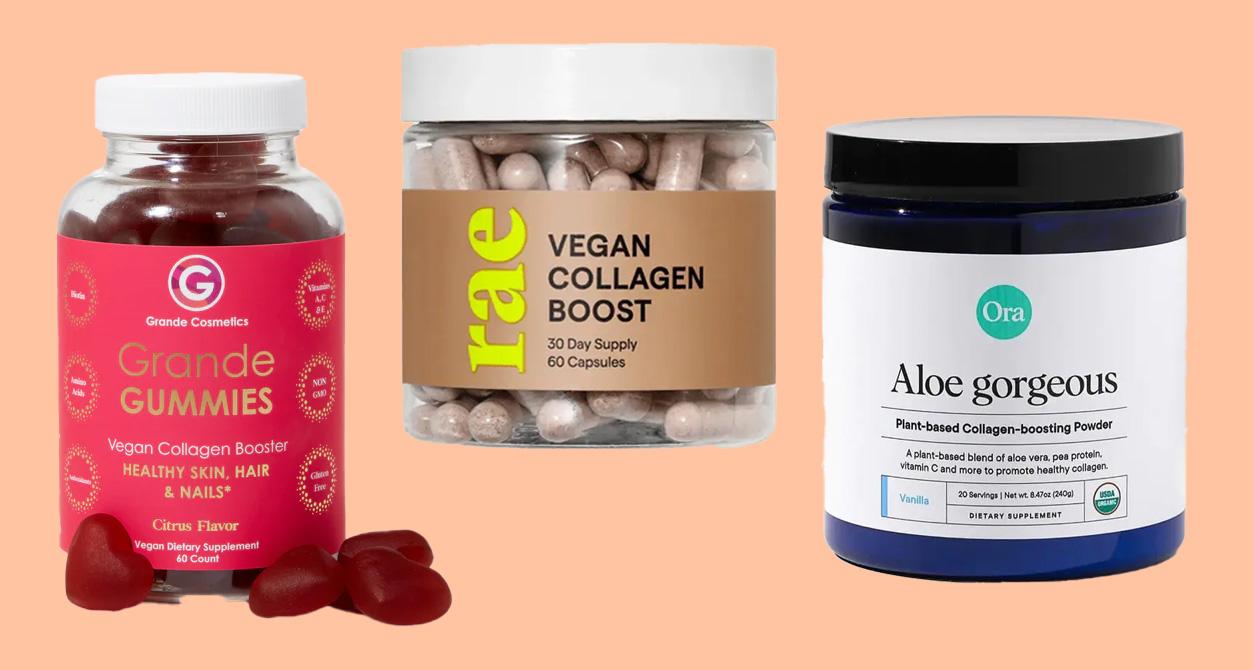
The Best Vegan Collagen Supplements for a Guilt-Free Glow from Head to Toe
The best vegan collagen supplements on the market include powders, pills, and gummies that nourish your skin, hair, nails, and even your joints.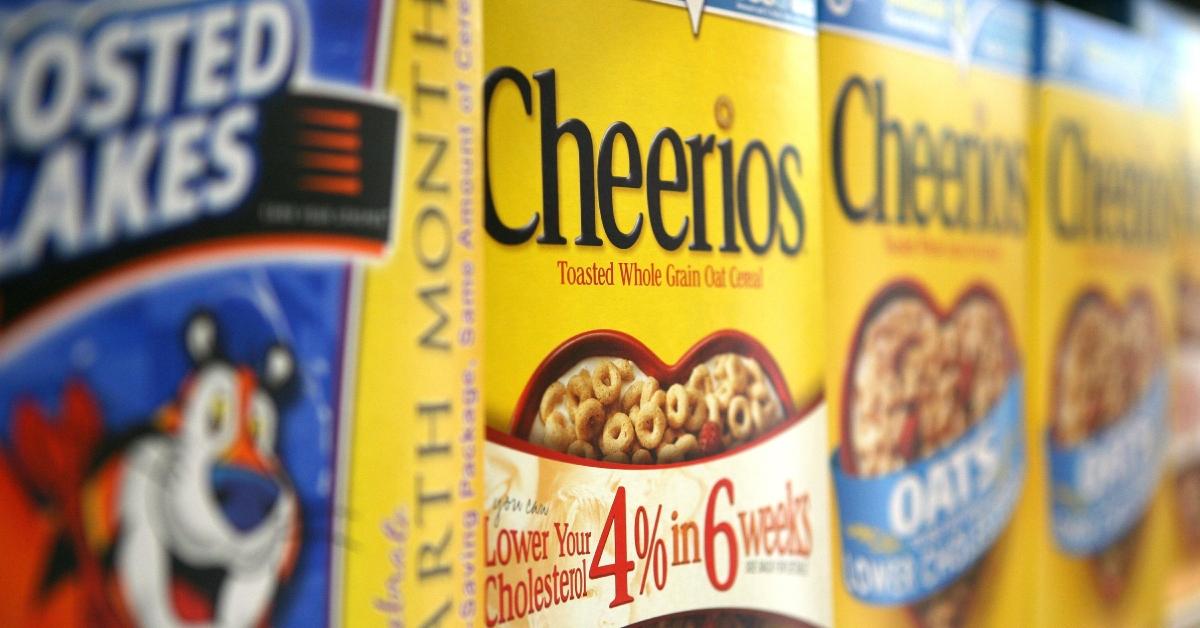
Your Cheerios Might Not Be Vegan Depending on Where You Live — Here’s Why
If you are vegan and one of your favorite cereals is Cheerios, you may want to look at the ingredients, because they might not be vegan.
"I Just Think It's Better for the Planet" — Cillian Murphy Is Embracing Vegan Diet
After a groundbreaking performance in 'Oppenheimer,' Cillian Murphy has told the public that he is “trying the vegan thing.”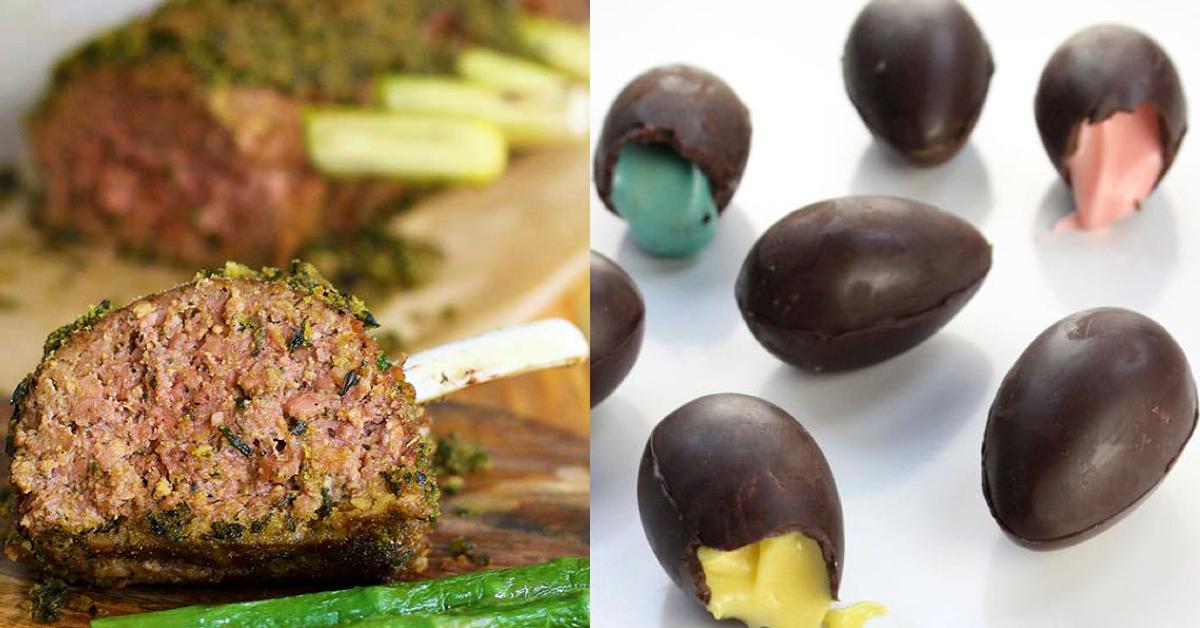
Easy Vegan Easter Recipes for a Compassionate Easter Sunday
Easter is a great opportunity to eat vegan, planet-friendly meals, and extend your compassion to animals and the Earth.
Delicious and Nutritious: 7 Vegan School Lunch Ideas to Keep Kids Energized
Whether you have five minutes to pack a lunch or are looking to have fun in the kitchen, there's a vegan school lunch recipe here for you.
This Vegan Bacon From 'Shark Tank' Is Made With Just Five Ingredients (Exclusive)
In an exclusive interview with 'Green Matters,' Meat The Mushroom's co-founder discussed his king oyster mushroom bacon product and 'Shark Tank' experience.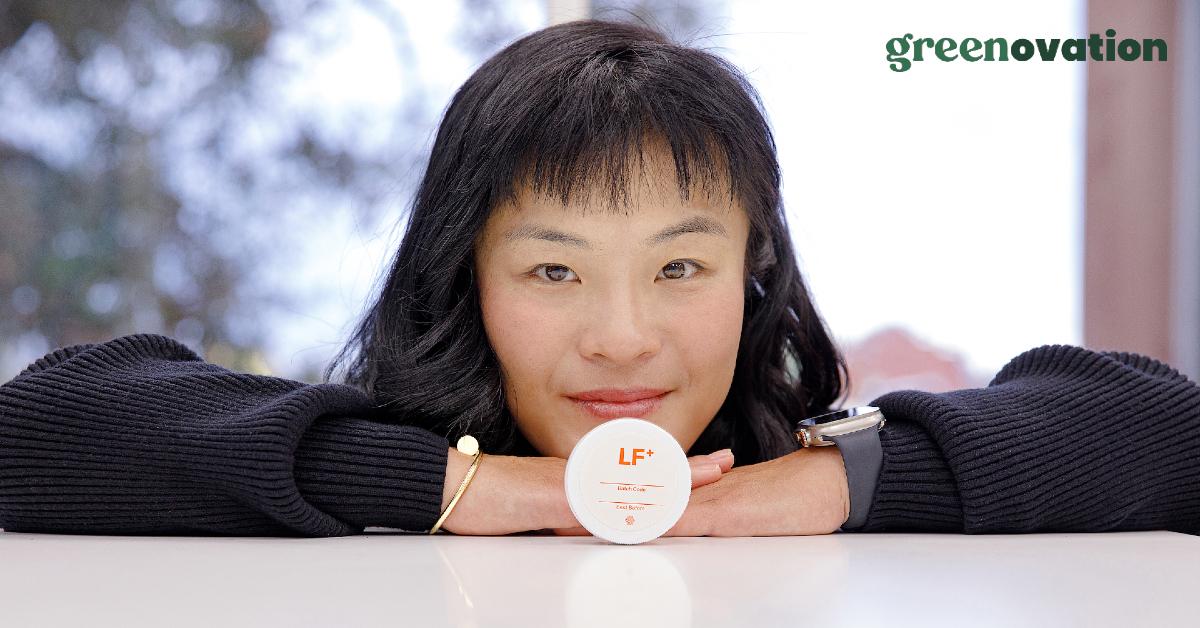
Digging For "Pink Gold": TurtleTree CEO Fengru Lin on the Magic of Vegan Dairy Lactoferrin (Exclusive)
Got vegan lactoferrin? In an exclusive interview with Green Matters, TurtleTree CEO and co-founder Fengru Lin discussed the company's certified vegan product, LF+.
Jennie Garth Talks Her '90s Environmentalism Journey and Love for Oat Milk (Exclusive)
In an interview with Green Matters, Jennie Garth discussed her environmentalism journey, her love for Planet Oat plant-based milk, and prioritizing sustainability.
Oscar Mayer Finally Launches Its First Plant-Based Meat Products
For the first time in 140 years, Oscar Mayer has launched its first line of vegan meats, making plant-based options even more accessible.